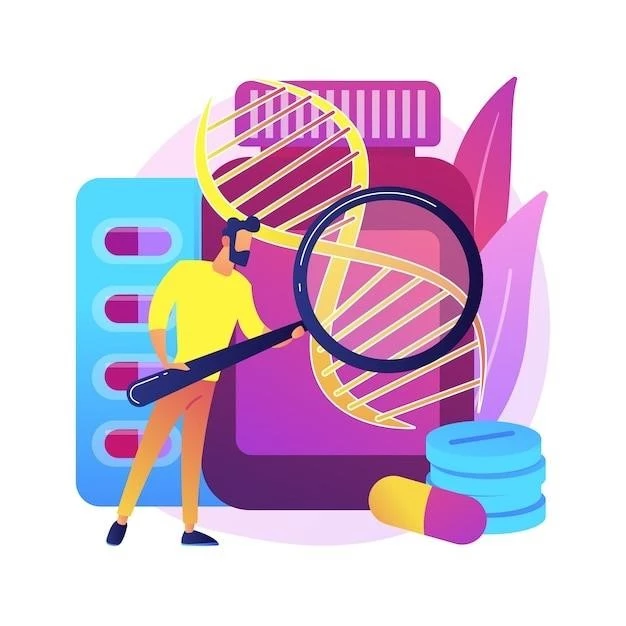Understanding Leifer–Lai–Buyse Syndrome
Leifer–Lai–Buyse Syndrome is a rare genetic disorder that affects various developmental aspects. This article will provide a comprehensive overview of the syndrome‚ covering its genetic basis‚ signs‚ symptoms‚ diagnosis‚ treatment options‚ support resources‚ current research‚ and behavioral/neurological insights.
Introduction to Leifer–Lai–Buyse Syndrome
Welcome to the informative journey into Leifer–Lai–Buyse Syndrome. This rare genetic condition impacts development significantly. Understanding its complexities can aid in recognizing the challenges individuals and families face. By delving into the genetic underpinnings‚ signs‚ and symptoms‚ we can unravel the mysteries surrounding this syndrome. Stay tuned to explore the diagnosis‚ prognosis‚ available treatments‚ support systems‚ ongoing research‚ and the behavioral and neurological aspects associated with Leifer–Lai–Buyse Syndrome. Let’s navigate this syndrome together to gain a deeper comprehension and offer better support to those affected.
Understanding the Genetic Basis
Exploring the genetic basis of Leifer–Lai–Buyse Syndrome unveils crucial insights into its origin and manifestation. This syndrome is a result of genetic mutations that impact various developmental processes. Understanding the specific genes involved and how they influence the condition is vital for diagnosis and management. Delve into the intricate world of genetics to comprehend how these genetic alterations lead to the unique characteristics of Leifer–Lai–Buyse Syndrome. Stay informed about the latest genetic research and advancements to enhance your understanding and support for individuals affected by this rare syndrome.

Signs and Symptoms of Leifer–Lai–Buyse Syndrome
Recognizing the signs and symptoms of Leifer–Lai–Buyse Syndrome is essential for early detection and intervention. Individuals with this syndrome may present with a range of developmental delays‚ intellectual disabilities‚ speech delays‚ and challenges with motor skills. Understanding the diverse symptoms‚ such as communication difficulties and atypical behaviors‚ can aid in timely diagnosis and appropriate therapies. Stay informed about the characteristic features of the syndrome to provide the necessary support and care to individuals affected by Leifer–Lai–Buyse Syndrome. Consult healthcare professionals for comprehensive evaluation and management strategies tailored to the specific needs of each individual.
Diagnosis and Prognosis
Diagnosing Leifer–Lai–Buyse Syndrome involves a comprehensive evaluation by healthcare professionals‚ including genetic testing and developmental assessments. Early diagnosis is crucial for implementing appropriate treatment plans and therapies. Prognosis can vary depending on the severity of symptoms and individual response to interventions. Understanding the diagnostic process and potential outcomes can help individuals and families navigate the challenges posed by the syndrome. Stay informed about advancements in diagnostic tools and therapeutic approaches to improve outcomes and quality of life for individuals living with Leifer–Lai–Buyse Syndrome.
Treatment and Therapies
Managing Leifer–Lai–Buyse Syndrome involves a multidisciplinary approach focusing on addressing developmental delays‚ intellectual disabilities‚ and behavioral challenges. Treatment strategies may include speech therapy‚ occupational therapy‚ behavioral interventions‚ and educational support tailored to individual needs. Early intervention plays a key role in improving outcomes and enhancing the quality of life for those with the syndrome. Stay proactive in exploring new therapeutic techniques and supportive strategies that can benefit individuals with Leifer–Lai–Buyse Syndrome. Collaborate with healthcare professionals to develop a comprehensive treatment plan that optimizes the potential for development and well-being.
Support and Resources for Individuals and Families
Accessing support and resources is crucial for individuals and families navigating the challenges of Leifer–Lai–Buyse Syndrome. Seek out local and online support groups‚ advocacy organizations‚ and healthcare providers specializing in developmental disorders. These resources can offer valuable information‚ emotional support‚ and connections to others facing similar experiences. Engage with community programs and services that cater to the unique needs of individuals with the syndrome. Stay informed about available financial assistance‚ educational programs‚ and respite care options to enhance the overall well-being of both individuals and families affected by Leifer–Lai–Buyse Syndrome.
Current Research and Studies
Staying informed about the latest research and studies on Leifer–Lai–Buyse Syndrome is essential for advancements in understanding and managing the condition. Follow scientific developments‚ clinical trials‚ and emerging therapies aimed at improving outcomes for individuals with the syndrome. By staying engaged with ongoing research efforts‚ you can contribute to the collective knowledge and potential breakthroughs in treatment approaches. Explore participation opportunities in research studies to enhance awareness‚ drive innovation‚ and ultimately improve the quality of life for individuals affected by Leifer–Lai–Buyse Syndrome.
Behavioral and Neurological Aspects
Understanding the behavioral and neurological aspects of Leifer–Lai–Buyse Syndrome is crucial for tailored interventions and support. Explore how the syndrome impacts motor skills‚ communication‚ and behavior patterns. Stay informed about the neurodevelopmental challenges individuals face and how they influence daily functioning. Enhance your knowledge of the neurological underpinnings to better comprehend the complexities of the syndrome. Collaborate with healthcare professionals to address behavioral concerns and implement strategies that support optimal neurological development. By focusing on these aspects‚ you can provide targeted care and interventions that promote the well-being of individuals living with Leifer–Lai–Buyse Syndrome.
Conclusion
Congratulations on completing the exploration of Leifer–Lai–Buyse Syndrome. As you’ve delved into the genetic basis‚ signs‚ symptoms‚ diagnosis‚ treatment options‚ and support resources‚ you’ve gained valuable insights into this rare condition. By understanding the behavioral and neurological aspects‚ you’re better equipped to provide personalized care and support. Stay engaged with current research to contribute to advancements in managing the syndrome. Remember‚ education and advocacy are key in enhancing the lives of individuals and families affected by Leifer–Lai–Buyse Syndrome. Your commitment to knowledge and support can make a significant difference in their journey.
